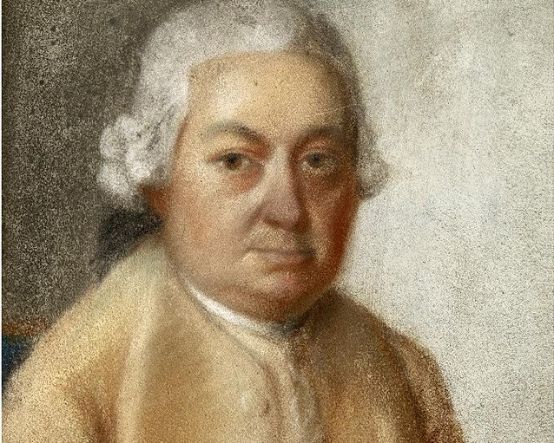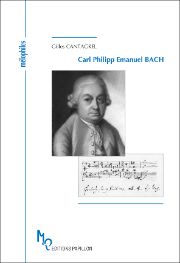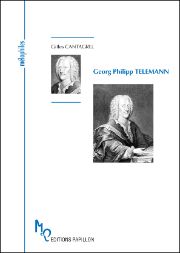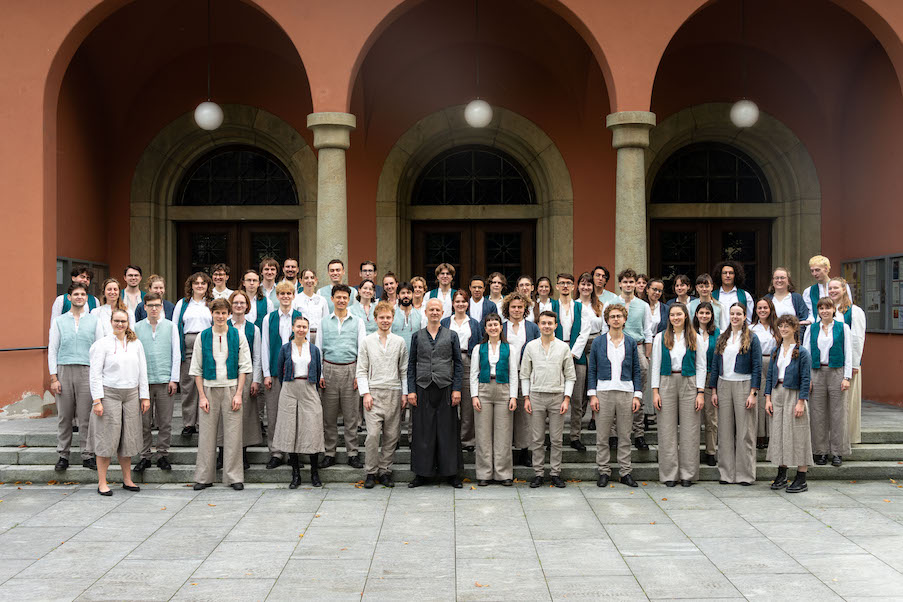CPE Bach and Telemann
Editions Papillon's extensive collection of monographs continues to grow year after year, with the publication of works devoted to composers unjustly overlooked by the French-speaking bibliography.

The latest book by Gilles Cantagrel, one of Johann Sebastian Bach's finest connoisseurs, is the first French-language biography devoted entirely to Carl Philipp Emanuel Bach, independently of his brothers or his family. Trained by his father, from whom he acquired his structural solidity, Carl Philipp Emanuel very soon developed his own autonomous and highly original musical personality. For him and his elder brother Wilhelm Friedemann, "necessity obliged them to choose a style of their own, for it would have been impossible for them to equal their father if they had wished to follow his manner" (Forkel).
Throughout his life, he never left Germany: after studying in Leipzig and Frankfurt, he was soon hired by the Crown Prince of Prussia (who came to the throne two years later as Frederick II), and remained in this position until 1767. At this point, he succeeded his godfather Telemann as cantor and musical director of the city of Hamburg and its five main churches.
After the biographical section, the second half of the book focuses on the composer's aesthetics and personality, as well as his vocal and instrumental works (including his most personal keyboard works, an impressive corpus of sonatas and fantasias), and his famous Versuch über die wahre Art das Clavier zu spielenwhich remains one of the fundamental sources for understanding the music of his time.
An emblematic figure of Empfindsamkeit, CPE Bach cultivated "the art of moving abruptly from one feeling to another" through unusual modulations or a sometimes adventurous tonal path, making him a master of introspection and the chiaroscuro of the human spirit. Cantagrel also reproduces in full his autobiography of 1773, a man of simple, lively and playful sociability.
A few years earlier, Editions Papillon published the first book in French devoted entirely to Telemann, CPE Bach's godfather and predecessor in Hamburg. Very famous in his own time, his fame quickly faded after his death, and his rich and diverse oeuvre has only recently been rediscovered.
As in the book devoted to Carl Philipp Emanuel Bach, a presentation of the vocal and instrumental works is preceded by a reader-friendly biography. In it, Cantagrel describes Telemann's hard work, already legendary in his own lifetime, his reputation as a composer recognized throughout Europe, his capacity as a man of action both in organizing concerts and as a publisher, but also his disastrous family situation: his second wife, frivolous and extremely profligate, a gambling addict, cheated on him, then abandoned husband and children.
Unlike most of his contemporaries, Telemann was not known for his virtuosity on any particular instrument; on the contrary, his extreme curiosity led him to learn to play almost any instrument. In his works, he was more interested in the diversity of colors and affects than in technical difficulty per se.
His music, brimming with imagination, verve and even facetiousness (especially in his descriptive works), is striking for its diversity: German, French, Italian and Polish styles alternate, yet are integrated into a personal synthesis.
The practical and pedagogical aspects of his work did not escape the musician's notice: he composed and published a series of religious cantatas for small ensembles, so that even small parishes could have music performed during church services. He also edited the first periodical music publication, Der getreue Music-Meister Telemann's operas are sometimes written in bilingual librettos: recitatives in German, so that the general public can follow the action, and arias in Italian.OrpheusThere are even choruses in French. Between 1740 and 1755, Telemann's formidable musical output came to a (relative) halt, and he ceased his publishing activities. He then turned his attention to projects for treatises on music theory (of which nothing has survived) and botany. The last years of his life saw the birth of new masterpieces, including the cantata Ino, in a style similar to that of Gluck. Opera was in crisis in Germany at the time, and Telemann (like Handel in England) devoted himself to composing oratorios, for which he chose librettos by the best poets, including Klopstock.
Gilles Cantagrel, Carl Philipp Emanuel Bach et l'âge de la sensibilité, 224 p., Fr. 44.95, Editions Papillon, Troinex 2013, ISBN 978-2-940310-46-3
Gilles Cantagrel, Georg Philipp Telemann ou le célèbre inconnu, 176 p., Fr. 20.90, Editions Papillon, Troinex 2003 ISBN 978-2-940310-15-7










